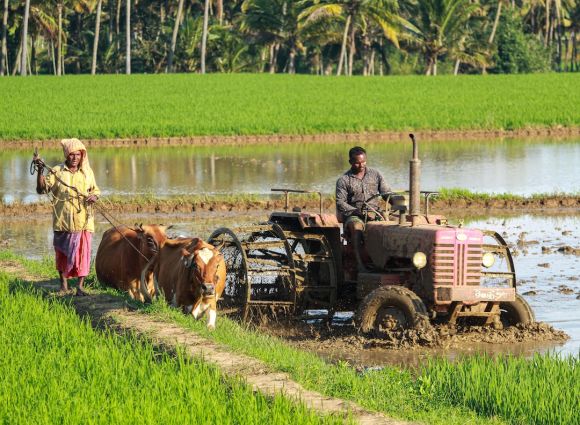In today’s rapidly evolving agricultural landscape, farmers are constantly seeking innovative solutions to enhance their crop management practices. With the advent of technology, farmers now have access to a wide range of tools and applications that can significantly improve the efficiency and productivity of their operations. In this article, we will explore some of the most exciting technological advancements in crop management and how they are revolutionizing farming practices.
Real-Time Monitoring and Data Collection
One of the key challenges faced by farmers is the ability to accurately monitor and gather data about their crops. Traditional methods of manual monitoring can be time-consuming and prone to errors. However, with the use of technology, farmers can now rely on real-time monitoring systems to collect data on various aspects of crop growth and health.
Satellite imaging and remote sensing technologies have made it possible to monitor crops from space. This allows farmers to detect early signs of stress, such as nutrient deficiencies or water scarcity, and take immediate action to mitigate the issue. Additionally, sensors and drones equipped with advanced imaging technology can provide detailed information about crop health, soil moisture levels, and pest infestations. This data can be analyzed to make informed decisions about irrigation, fertilization, and pest control, resulting in optimized crop yields.
Precision Agriculture
Precision agriculture is an innovative approach that utilizes technology to optimize farming practices by tailoring them to the specific needs of individual crops or even sections of fields. GPS technology, combined with data from sensors and satellite imaging, allows farmers to create detailed maps of their fields, highlighting areas of variability in soil properties, nutrient levels, and crop health.
These maps can then be used to apply inputs, such as fertilizers and pesticides, only where they are needed, reducing wastage and minimizing the environmental impact. Furthermore, precision agriculture enables farmers to optimize planting patterns, irrigation schedules, and harvesting techniques, resulting in higher yields and reduced costs.
Crop Management Apps
The proliferation of smartphones has led to the development of numerous crop management apps that provide farmers with instant access to valuable information and tools. These apps offer a wide range of features, including weather forecasts, pest and disease identification, market prices, and even recommendations for optimal planting and harvesting times.
By utilizing these apps, farmers can make informed decisions on a day-to-day basis, ensuring that their crops are well-managed and protected from potential threats. Moreover, these apps often allow farmers to connect with other experts and growers, facilitating knowledge-sharing and collaboration within the farming community.
Automated Systems
Automation has become increasingly prevalent in modern agriculture, streamlining various aspects of crop management. For instance, automated irrigation systems can be programmed to deliver precise amounts of water to crops based on real-time data, minimizing water wastage and ensuring optimal hydration.
Similarly, automated machinery, such as robotic harvesters and weed control systems, can significantly reduce labor requirements and increase efficiency. These automated systems not only save time and effort but also contribute to sustainable farming practices by minimizing the use of resources.
In conclusion, the integration of technology into crop management has opened up new possibilities for farmers. Real-time monitoring, precision agriculture, crop management apps, and automated systems are revolutionizing the way farmers approach their daily tasks. By embracing these innovative solutions, farmers can enhance productivity, reduce costs, and contribute to sustainable agricultural practices. As technology continues to advance, it is crucial for farmers to stay informed and adapt their practices accordingly, to ensure a bright future for the agricultural industry.
